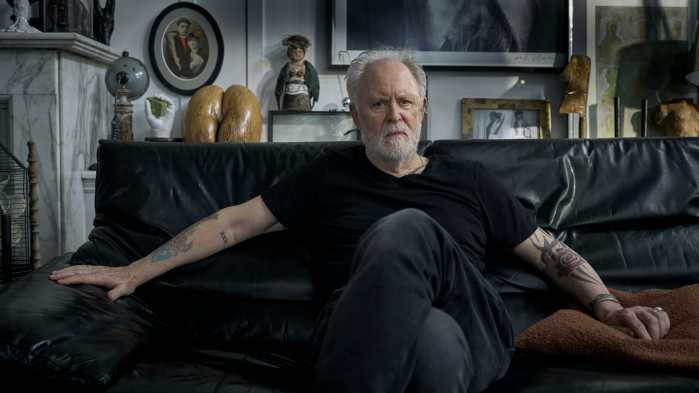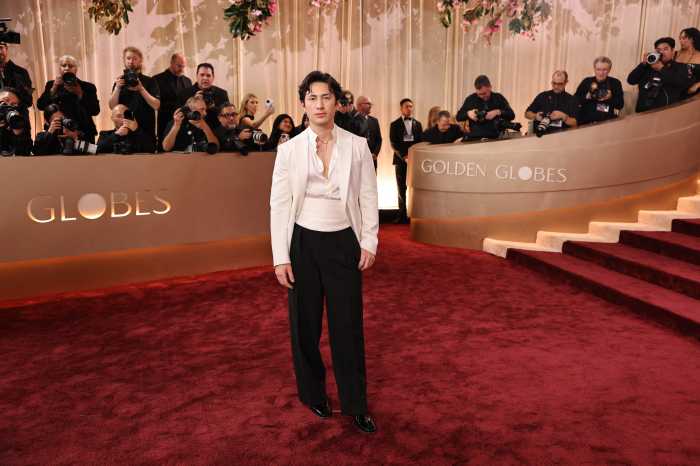By GARY M. KRAMER“I am basically a very shy person, and that is why I write. What I like most about writing is the observations I get to make,” said Stephen McCauley, the boyish author of True Enough, the Boston-based writer's fourth (and arguably best) book, recently out in paperback (Pocket Books). Telling the twin stories of Jane Cody, a straight woman, and Desmond Sullivan, a gay man, True Enough shows how their lives parallel and intersect. The wry, witty novel is full of poignant observations about love, relationships, and very human foibles that make his characters memorable. When the book was first released in hardback, it garnered McCauley some of the best reviews of his career. In Gay City News, Seth J. Bookey called it “razor sharp” and “also tempered by the perspective only time and maturity bring.”
True Enough flips back and forth between Jane and Desmond''s lives—who they really are versus who they wish they were. “I have a great deal of tolerance for characters who are fuck-ups, and I just like pursuing the seemingly benign mistakes people make and how it effects their lives. I see the journey in all of my books as the characters inching towards greater self-awareness, and making better decisions.”
Jane is grappling with her misplaced attraction to her ex-husband and the disdain she feels towards her precocious six-year-old son Gerald when she meets Desmond, a visiting professor at the Boston college where her husband teaches. Desmond becomes a catalyst for helping Jane reconcile the loose ends of her life. Desmond is in Boston temporarily fleeing his New York boyfriend of five years, Russell, who may or may not be cheating on him. As Desmond tries to complete a book he is writing about a mediocre singer named Pauline Anderton, Jane decides to develop Desmond''s project into a series for the public-TV station where she works. Soon both characters are avoiding confrontation and clinging to each other for support. As their problems escalate, both Jane and Desmond recognize the need to be honest with themselves before they can get on with their lives.
“The comic tone in my novels—there''s always some truth in it—is an observation exaggerated to an extreme,” said McCauley. True Enough sustains its humor as Jane and Desmond both find themselves in uncomfortable situations, especially when it comes to sex. Where Jane is increasingly excited about trysts with her ex-husband, Desmond fights the urge to sleep with Jane''s randy brother.
“I love the little ironies of relationships and human behavior. That is what drives me as a writer.” The sentiment comes across clearly on the page. True Enough is filled with comic moments such as Jane''s penchant for creating “to do” lists comprised of both real and fictitious tasks. Masking her life in coded messages, while she forgets what the messages mean, is indicative of Jane''s quite personal failings.
McCauley said he was “blown away” when he learned shortly after the publication that one of his friends who read the book shared the same trait as Jane.
McCauley bases characters on people he has known in the past—the travel agency in his novel The Easy Way Out stemmed from a real-life experience. Many other characters, like the scene-stealing Gerald, are complete inventions. In fact, the precocious Gerald developed from McCauley''s wish not to have a charming child character. It was a great way, he felt, to say something about Jane. Yet, McCauley says he does not predetermine his stories.
“I don''t have things very carefully worked out when I begin a book. I start with a couple of characters and some kind of situation, and then see what happens,” McCauley said. “I don''t think I really have any plots.”
Anyone who has wondered where the sex is in McCauley’s books will be interested to learn that the author finds explicit sex in much contemporary fiction “tired.” (His next comment, about being an advocate and consumer of pornography, is strictly deadpan).
Perhaps McCauley''s slow gestation period between novels— “I write a lot of stuff and throw out tons,” he says—explains why five years have elapsed between this book and his previous novel, Man of the House. (Truth vs. fiction note: McCauley owns a mutt like the protagonist’s in Man of the House).
Although McCauley’s novels have considerable mainstream appeal, McCauley “doesn''t know” why he doesn''t have more mainstream success. “The whole publishing business is pretty mysterious. My books sell reasonably well, and they''ve made money, but….” his soft-spoken voice trails off, and the question remains.
Where he did receive support, initially, was from independent and gay bookstores. “It''s really sad about [the demise of many] gay bookstores. When my first book came out, with very little fanfare, it was successful because independent bookstores ‘hand-sold’ it.”
His first novel, as most readers know, was The Object of My Affection. While the book''s sales were brisk, it was selling the film rights that made McCauley money. About the film of his book, McCauley is gracious. “I didn''t think the movie would ever get made.” (It took 11 years for the project took to get from page to screen.)
McCauley “liked” the film, but says he realized early on that it would be different from the book. “Wendy Wasserstein (who adapted the screenplay) kept the spirit of the novel, although everything else was changed.” Even some characters names.

































